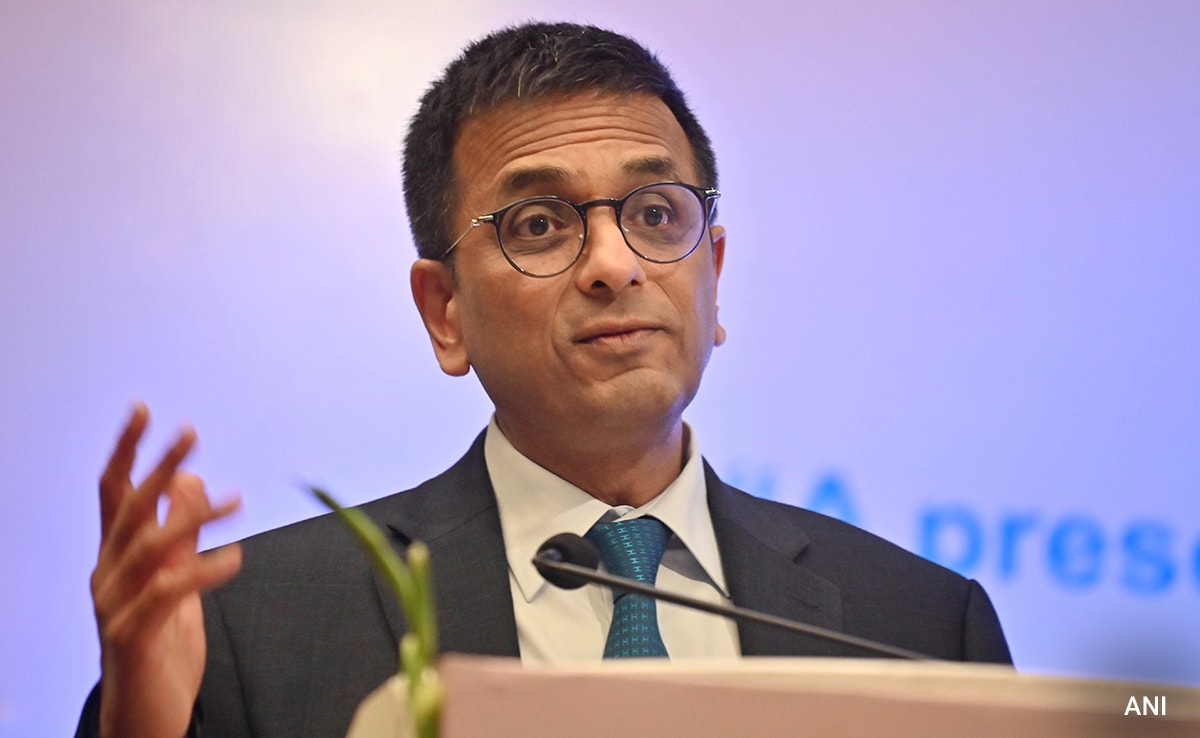
A three-judge bench led by Chief Justice of India Chandrachud heard the matter today
New Delhi:
A woman’s petition to abort her 26-week pregnancy has brought before the Supreme Court the tough task to balance the rights of an unborn child against a mother’s bodily autonomy. A two-judge bench yesterday gave a split verdict on the centre’s request to recall the permission for abortion.
Chief Justice of India DY Chandrachud said the court has “to balance the rights of the unborn child”, which is not being represented in court. “Of course, the autonomy of the mother triumphs, but here nobody is appearing for the child. How do we balance the rights of the child?” the Chief Justice asked during a hearing a day after a split verdict.
“The fact of the matter remains, it is not just a foetus, it is a living, viable foetus. If given birth to, it can survive outside,” he added.
After two judges, a three-judge bench led by the Chief Justice of India made strong observations today, asking if the petitioner wanted the court to issue an order for the child’s death.
A mother of two, the married woman has said she is suffering from depression and is not in a position to raise a third child, emotionally or financially.
On October 9, the Supreme Court had allowed her to abort the pregnancy. Thereafter, the centre sought a recall of the order, citing the advice of a panel of doctors at AIIMS Delhi against the abortion. The panel of doctors has advised against the termination of pregnancy, pointing out that the foetus is showing signs of life.
Justice Hima Kohli asked which court can say “stop the heartbeat of a foetus”. Her fellow judge, Justice BV Nagarathna disagreed and said the court should respect the decision of the woman.
“Having regard to the concrete determination made by the petitioner, I find that her (woman) decision must be respected. This is not a case where the question of viable baby being born or unborn is to be really considered when the interest of petitioner has to be given more balance and preference,” Justice Nagarathna said yesterday.
During the hearing today, the court today said one option was to let the child be born and then the government can take care of it. The court asked the woman if she could wait for a few more weeks and then go for a normal delivery.
The court underlined that a hasty delivery at this point may lead to deformities in the foetus. “If the child is born with deformities now, no one will want to adopt,” the Chief Justice said.
The woman’s counsel said she was poor and not well-educated. The bench was not convinced.
“The foetus would survive better in the womb. That’s nature! What your client wants is, ‘relieve me today’. But your client is also clear that don’t stop the heart. Experts say if we take out the foetus today, it’ll grow up with deformities,” Justice JB Pardiwala said.
The counsel for the woman said the question of foeticide would have come up if she was not married. “Isn’t that a relevant factor?” the Chief Justice asked. When the counsel cited the Delhi High Court allowing termination of a 29-week pregnancy, the Chief Justice responded sharply, “But, we are the Supreme Court”.
Appearing for the centre, Additional Solicitor General Aishwarya Bhati said the petitioner’s counsel has cited a court ruling in a rape survivor’s plea for permission to abort. “She (petitioner) is no rape survivor. She is not a minor. What was she doing for 26 weeks?”
The court has now asked the woman’s counsel and centre’s representative to discuss the matter with her ahead of the next hearing tomorrow.




